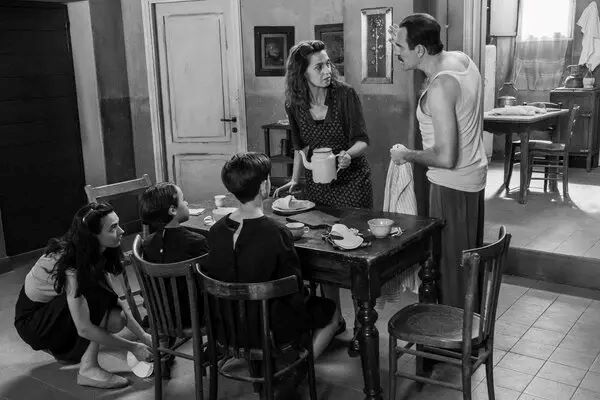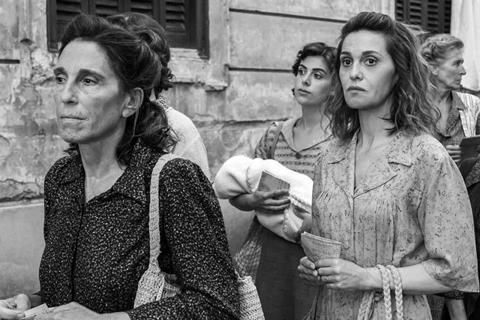There’s Still Tomorrow
15One of the greatest gifts that Italian cinema has given the world has to be the genre neo realism. It was a movement that was embraced by such filmmakers as Luchino Visconti, Roberto Rossellini, Federico Fellini and Vittorio De Sica for about ten years from around 1943.
It was a whole new style of filming in Italy, that mostly relied on stories with a social edge, and shot on location, moving away from studio based films, such as those shot at the famous Cinecittá studios in Rome, which had been damaged during the war.
One of the poster boy titles for the movement would have to be De Sica’s 1948 masterpiece The Bicycle Thief, which is a title definitely worth searching out if you haven’t had the good fortune to have seen it as yet.
Clearly paying homage to the genre is Paola Cortellesi, who not only stars in There Still Tomorrow, but also makes her directorial debut.

I told you I like the Panetonne with the dried fruit in!
1946, a working class area of Rome, trying to get back on its feet after suffering defeat in the war. One woman, Delia (Cortellesi), is doing her best to look after her family, including her husband Ivano (Valerio Mastandrea), his father Ottorino (Giorgio Colangeli) their daughter Marcella (Romana Maggiora Fanelli), and their two potty-mouthed young sons, by working a number of jobs to help bring money in.
Unfortunately for Delia, Ivano is a brute of a husband, who treats her despicably, often resorting to violence. Marcella is disappointed with her mother, seeing the way she lets her father treats her, and often confronts her as to why she puts up with it. The truth is, she simply doesn’t have any choice.
There is a glimmer of hope when an old flame who runs the local garage, tells her that he’s going to have to leave, but he wants her to go with him, but will Delia find the courage to do such a thing, or will the violent hand of her husband take an even tighter grip on her, forcing her to live in his dark shadow forever more.

I just hope I get a ticket to Taylor Swift's gig.
It’s clear from the opening scenes where Cortellesi’s inspiration comes from, with her stark black and white shots and her central working class family, with many of the exteriors filmed on location.
At the heart of everything is the character Daliah, who can be found in almost every frame. She works her fingers to the bone, without any recognition, making her the typical protagonist that will instantly win any audience on her side.
Her story is one of domestic abuse, at a time where a man could get away with any behaviour under his roof, even with the rest of the community fully aware of the situation. Cortellesi handles this storyline in a very creative fashion at times, by using some impressive choreography, which still manages to convey the brutality of the actions.
Considering this is her debut behind the camera, it’s impressive on every front, making for an outstanding first feature. There is perhaps only one scene, featuring a US soldier, that doesn’t quite embody the neorealist philosophy, and is quite jarring for being so, but in the grand scheme of things, can easily be forgiven.
There’s also an interesting element of sleight of hand too, in the sense that the film is clearly going in one direction, for obvious reasons, before showing its real hand, which is one of those moments where you reassess everything up until the point and have it make perfect sense.
Cortellesi’s heroine Daliah lights up the screen throughout, carrying both the weight of the narrative as well as the audience’s hopes on her shoulders.
Cortellesi the director not only manages to pay homage to a truly important film movement with a truly stunning looking film with one foot in the past and the other the present, but also highlight domestic abuse, as well as the vast strides made by the Women’s Rights movement, all wrapped up in a feature that is undoubtedly, gloriously and unmistakeably Italian. Bravo.
